According to Wikipedia
Hygiene is a series of practices performed to preserve health.
According to the World Health Organization (WHO), “Hygiene refers to conditions and practices that help to maintain health and prevent the spread of diseases.”
Personal hygiene refers to maintaining the body’s cleanliness.
Many people equate hygiene with ‘cleanliness,’ but hygiene is a broad term. It includes such personal habit choices as how frequently to take a shower or bathe, wash hands, trim fingernails, and change and wash clothes. It also includes attention to keeping surfaces in the home and workplace, including bathroom facilities, clean and pathogen-free.
Some regular hygiene practices may be considered good habits by a society, while the neglect of hygiene can be considered disgusting, disrespectful, or threatening.
Preventive Measures
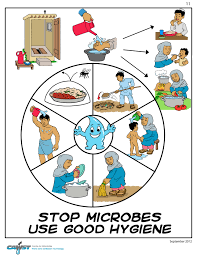 Hygiene is a concept related to cleanliness, health and medicine. It is as well related to personal and professional care practices. In medicine and everyday life settings, hygiene practices are employed as preventative measures to reduce the incidence and spreading of disease.
Hygiene is a concept related to cleanliness, health and medicine. It is as well related to personal and professional care practices. In medicine and everyday life settings, hygiene practices are employed as preventative measures to reduce the incidence and spreading of disease.
Hygiene practices vary, and what is considered acceptable in one culture might not be acceptable in another.
In the manufacturing of food, pharmaceutical, cosmetic and other products, good hygiene is a critical component of quality assurance.
The terms cleanliness and hygiene are often used interchangeably, which can cause confusion. In general, hygiene refers to practices that prevent spread of disease-causing organisms. Cleaning processes (e.g., hand washing) remove infectious microbes as well as dirt and soil, and are thus often the means to achieve hygiene.
The Importance Of Proper Hand Washing
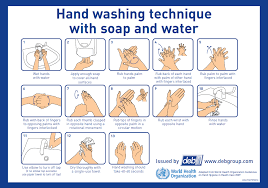
According to Better Health Channel, proper hand washing is important because a number of infectious diseases can be spread from one person to another by contaminated hands. These diseases include gastrointestinal infections, such as Salmonella, and respiratory infections, such as influenza. Washing your hands properly can help prevent the spread of the germs (like bacteria and viruses) that cause these diseases.
Some forms of gastrointestinal and respiratory infections can cause serious complications, especially for young children, the elderly, or those with a weakened immune system.
About Oral Hygiene
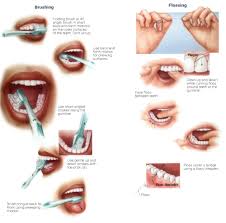 mouthhealthy.org says oral health touches every aspect of our lives but is often taken for granted. Your mouth is a window into the health of your body. It can show signs of nutritional deficiencies or general infection. Systemic diseases, those that affect the entire body, may first become apparent because of mouth lesions or other oral problems.
mouthhealthy.org says oral health touches every aspect of our lives but is often taken for granted. Your mouth is a window into the health of your body. It can show signs of nutritional deficiencies or general infection. Systemic diseases, those that affect the entire body, may first become apparent because of mouth lesions or other oral problems.
Whether you are 80 or 8, your oral health is important. Most Americans today enjoy excellent oral health and are keeping their natural teeth throughout their lives; however, cavities remain the most prevalent chronic disease of childhood. Some 100 million Americans fail to see a dentist each year, even though regular dental examinations and good oral hygiene can prevent most dental disease. Many people believe that they need to see a dentist only if they are in pain or think something is wrong, but regular dental visits can contribute to a lifetime of good oral health. If you are experiencing dental pain, don’t put off seeing a dentist. With dentistry’s many advances, diagnosis and treatment are more sophisticated and comfortable than ever.
 You can practice good oral hygiene by always brushing your teeth twice a day with a fluoride toothpaste, cleaning between your teeth once a day with floss or another inter-dental cleaner, replacing your toothbrush every three or four months and by eating a balanced diet and limiting between-meal snacks. Don’t forget to schedule regular dental check-ups to keep your smile, and yourself, healthy.
You can practice good oral hygiene by always brushing your teeth twice a day with a fluoride toothpaste, cleaning between your teeth once a day with floss or another inter-dental cleaner, replacing your toothbrush every three or four months and by eating a balanced diet and limiting between-meal snacks. Don’t forget to schedule regular dental check-ups to keep your smile, and yourself, healthy.
Facial Hygiene
Centers for Disease Control and Prevention says, many diseases and conditions can be prevented or controlled through appropriate personal hygiene and by frequently washing parts of the face with soap and clean, running water (if available). Appropriate facial hygiene practices include not only washing the face but also properly caring for teeth, mouth, eyes, contact lenses, and ears.
Torso Hygiene
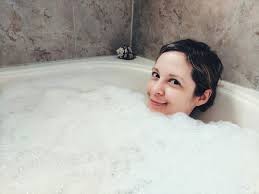 The Torso (Trunk) consists of, the Abdomen (Waist, Midriff, Navel), Back, Thorax (Breast), and Pelvis (Sex Organs).
The Torso (Trunk) consists of, the Abdomen (Waist, Midriff, Navel), Back, Thorax (Breast), and Pelvis (Sex Organs).
According to Wikipedia, the torso or trunk is an anatomical term for the central part or core of many animal bodies (including humans) from which extend the neck and limbs. The torso includes: the thoracic segment of the trunk, the abdominal segment of the trunk, and the perineum.
Feet Hygiene
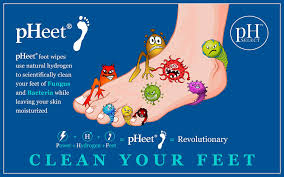 The good news is that smelly feet are usually easy to treat by keeping your feet clean and dry, and changing your shoes regularly.
The good news is that smelly feet are usually easy to treat by keeping your feet clean and dry, and changing your shoes regularly.
To treat sweaty or smelly feet yourself, try to:
- wash your feet with an antibacterial soap once a day (a pharmacist can advise you about different products)
- dry your feet well after they have been wet, especially between your toes
- try not to wear the same pair of shoes 2 days in a row so they have at least 24 hours to dry out
- change your socks (ideally wool or cotton, not nylon) at least once a day
- keep your toenails short and clean, and remove any hard skin with a foot file (it can become soggy when damp, which provides an ideal home for bacteria)
If you often get sweaty feet, you might want to try:
- using a spray deodorant or antiperspirant on your feet – a normal underarm deodorant or antiperspirant works just as well as a specialist foot product and will cost you less
- putting medicated insoles, which have a deodorizing effect, in your shoes
- using a foot powder to absorb sweat (a pharmacist can advise you about foot powders)
- trying socks for sweaty feet – some sports socks are designed to keep feet dry, and you can get special antibacterial socks
- wearing leather or canvas shoes, as they let your feet breathe, unlike plastic ones
- always wearing socks with closed-toe shoes
Sleep Hygiene
 Activities that reduce physiological arousal and cognitive activity promote falling asleep, so engaging in relaxing activities before bedtime is recommended.
Activities that reduce physiological arousal and cognitive activity promote falling asleep, so engaging in relaxing activities before bedtime is recommended.
Conversely, continuing important work activities or planning shortly before bedtime or once in bed has been shown to delay falling asleep.
Similarly, good sleep hygiene involves minimizing time spent thinking about worries or anything emotionally upsetting shortly before bedtime.
Home Hygiene
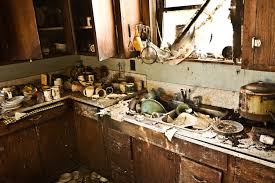 There is a growing consumer and governmental interest in natural cleaning products and green cleaning methods. The use of nontoxic household chemicals is growing as consumers become more informed about the health effects of many household chemicals, and municipalities are having to deal with the expensive disposal of household hazardous waste (HHW).
There is a growing consumer and governmental interest in natural cleaning products and green cleaning methods. The use of nontoxic household chemicals is growing as consumers become more informed about the health effects of many household chemicals, and municipalities are having to deal with the expensive disposal of household hazardous waste (HHW).
Kitchen Hygiene
 We must remember that food-borne illnesses include both viruses and bacteria. In general, these diseases travel from one place to another by hitch-hiking on unwashed hands or relaxing on contaminated utensils. These sometimes deadly, harmful bacteria thrive in the same sorts of temperatures human beings do. Similar to us, they do not like temperatures that are too hot or too cold either. A room-temperature counter-top is a cozy, ideal place for bacteria to grow and multiply.
We must remember that food-borne illnesses include both viruses and bacteria. In general, these diseases travel from one place to another by hitch-hiking on unwashed hands or relaxing on contaminated utensils. These sometimes deadly, harmful bacteria thrive in the same sorts of temperatures human beings do. Similar to us, they do not like temperatures that are too hot or too cold either. A room-temperature counter-top is a cozy, ideal place for bacteria to grow and multiply.
Bathroom Hygiene
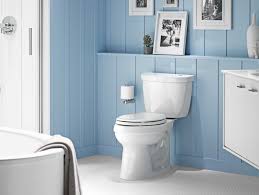 Bathroom Hygiene, according to Wikipedia, deals with routine cleaning of (hand, food, drinking water) sites and surfaces (such as toilet seats and flush handles, door and tap handles, work surfaces, bath and basin surfaces) in the bathroom and toilet reduces the risk of spread of pathogens.
Bathroom Hygiene, according to Wikipedia, deals with routine cleaning of (hand, food, drinking water) sites and surfaces (such as toilet seats and flush handles, door and tap handles, work surfaces, bath and basin surfaces) in the bathroom and toilet reduces the risk of spread of pathogens.
Toilet Hygiene
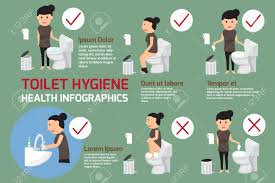 Toilet bowls, seats, urinals, washbowls, and other fixtures should be cleaned properly. For this reason, it is of the utmost importance that adequate ventilation be maintained at all times. Room temperature should be kept as low as possible in summer, and not over 65 in winter. A warm room allows growth of bacteria, which is the source of many odors. Under normal conditions, daily cleaning is satisfactory.
Toilet bowls, seats, urinals, washbowls, and other fixtures should be cleaned properly. For this reason, it is of the utmost importance that adequate ventilation be maintained at all times. Room temperature should be kept as low as possible in summer, and not over 65 in winter. A warm room allows growth of bacteria, which is the source of many odors. Under normal conditions, daily cleaning is satisfactory.
Laundry Hygiene
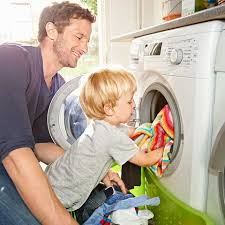 Bacteria can remain alive on fabrics for a very long time. Staphylococcus (“staph”)
Bacteria can remain alive on fabrics for a very long time. Staphylococcus (“staph”)
can live on wool blankets for eighteen weeks and on muslin sheets for twelve weeks.
Contaminated clothing and household textiles thus can become carriers of disease-producing microorganisms. Microorganisms—microbes—include bacteria (examples: Staphylococcus^ Pseudomonas); viruses (examples: influenza, poliomyelitis); fungi (examples: those causing mildew and ringworm); protozoa (examples: those causing amebic dysentery and malaria).
Please Leave All Comments in the Comment Box Below ↓
- Hand Washing Hygiene
- Oral Hygiene
- Facial Hygiene
- Torso Hygiene
- Feet Hygiene
- Sleep Hygiene
- Home Hygiene
- Kitchen Hygiene
- Bathroom Hygiene
- Laundry Hygiene

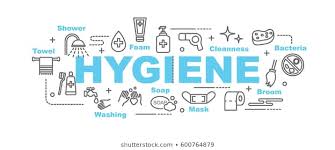
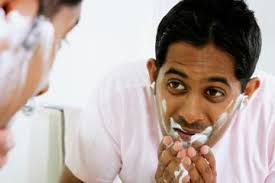












Wow I’ve always thought that I have great hygiene but I didn’t know there were so many types of hygiene. I’ve never even heard of many of these such as sleep hygiene which apparently I am very bad at since I have a habit of looking at my phone in bed until I fall asleep. I like to keep good hygiene for my body and surroundings because I feel uncomfortable and dirty otherwise. I don’t mind developing even better hygiene habits, thanks for bringing all these different things to my attention.
Thank you very much for reading and commenting on this article. It satisfies me to know that I could be of some assistance in bringing the different types of hygiene to your attention.
I definitely thank you again for your reading and commenting on this article.
Thank you very much for sharing about these hygiene lifestyle tips! Due to coronavirus outbreak, I have struggled to keep both myself and my surrounding clean. I almost forget to clean myself due to work from home policy, but your article here remind me to stay clean even if I don’t go anywhere. For hygiene washing, any tips about how to kill the bacteria AND virus? Or do they automatically killed with normal washing procedure? Thanks
First of all, I want to thank you for taking the time to read and comment on this article. As you have stated this is a perfect time for the practice of good hygiene especially when considering the coronavirus outbreak.
I am pleased to know that this article was an influence in reminding you to stay clean even if you don’t go anywhere.
As far as hygiene washing, if you left click while hovering over it, you will be directed to the Washing Hygiene Post, which explains any tips about how to kill the bacteria AND viruses.
Thank you again for taking the time to read and comment on this post.
In trying times like these where the spread of COVID-19 is causing much panic, the level of our hygiene becomes important. The fact that I have learned something really tangible from this post is very satisfying. The building of your website is nice and the simplicity of the color selection makes it so beautiful.
Thank you very much.
Thank you for taking the time to read and comment on this article.
I am extremely thankful that you have learned some things from this post. This motivates me to keep creating posts of this nature.
Thank you again for reading and commenting on this post.
Blessings To You My Friend!